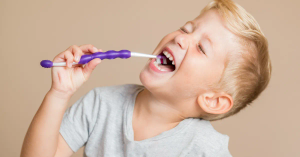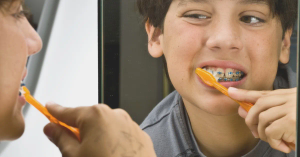Pregnancy is a transformative time, but it also brings unique challenges to your health including your oral health. Hormonal changes during pregnancy can affect your gums and teeth, increasing the risk of issues like gum disease, tooth decay, and even complications for your baby.
How Does Pregnancy Affect Oral Health?
Pregnancy introduces hormonal, dietary, and lifestyle changes that can impact your dental health:
1. Hormonal Changes
Elevated levels of estrogen and progesterone during pregnancy can increase blood flow to the gums, making them more sensitive and prone to inflammation, a condition known as pregnancy gingivitis.
2. Increased Risk of Gum Disease
If left untreated, pregnancy gingivitis can progress to periodontitis, a severe gum infection. Research suggests that gum disease during pregnancy is linked to:
• Preterm birth.
• Low birth weight.
• Preeclampsia (high blood pressure).
3. Morning Sickness
Frequent vomiting can expose teeth to stomach acid, increasing the risk of enamel erosion and tooth sensitivity.
4. Cravings and Diet Changes
Pregnancy cravings, especially for sugary foods, can lead to an increased risk of cavities.
5. Calcium Demands
While your baby doesn’t draw calcium directly from your teeth, inadequate calcium intake during pregnancy can weaken your bones and teeth.
Common Dental Issues During Pregnancy
1. Pregnancy Gingivitis
• Symptoms: Red, swollen, and bleeding gums.
• Cause: Hormonal changes combined with plaque buildup.
2. Loose Teeth
• Hormonal shifts can temporarily loosen the ligaments and bones supporting your teeth.
3. Cavities
• Increased snacking and reduced oral hygiene due to nausea or fatigue can heighten cavity risk.
4. Pregnancy Tumors
• Small, benign growths on the gums may appear due to inflammation. These usually resolve after delivery.
How Dental Health Affects Your Baby
Your oral health doesn’t just impact you—it can also affect your baby’s health:
• Preterm Birth and Low Birth Weight: Studies have shown a correlation between maternal gum disease and preterm or low-birth-weight babies.
• Risk of Early Childhood Cavities: Untreated cavities in the mother can increase the risk of cavity-causing bacteria being passed to the baby.
Safe Dental Care During Pregnancy
It’s safe and essential to visit your dentist during pregnancy. Here’s what to know:
1. Inform Your Dentist About Your Pregnancy
• Let your dentist know how far along you are and if you have any pregnancy-related conditions.
• Most routine procedures, like cleanings and exams, are safe throughout pregnancy.
2. Timing Matters
• The second trimester (weeks 13–28) is often the best time for dental treatments, as nausea subsides and lying back in the chair is more comfortable.
• Major treatments requiring anesthesia should be postponed until after delivery, unless they are urgent.
3. X-Rays and Medications
• Dental X-rays are generally safe with proper shielding, but consult your dentist and doctor.
• Only use dentist-approved medications or antibiotics.
4. Morning Sickness Management
• Rinse your mouth with water or a baking soda solution after vomiting to neutralize stomach acid.
• Wait 30 minutes before brushing to avoid damaging softened enamel.
Tips for Maintaining Oral Health During Pregnancy
1. Brush and Floss Regularly
• Brush twice a day with fluoride toothpaste.
• Floss daily to remove plaque buildup between teeth.
2. Eat a Balanced Diet
• Include calcium-rich foods like milk, yogurt, and leafy greens.
• Limit sugary snacks and drinks.
3. Stay Hydrated
• Drink plenty of water to support saliva production, which helps protect teeth.
4. Schedule Dental Checkups
• Regular dental visits are crucial for preventing and managing gum disease and cavities.
5. Avoid Tobacco and Alcohol
• Smoking and drinking increase the risk of oral and overall pregnancy complications.
FAQs About Pregnancy and Dental Health
Q1. Is it safe to get a dental cleaning while pregnant?
Yes, dental cleanings are safe and recommended during pregnancy to prevent gum disease and cavities.
Q2. Can I get dental fillings or extractions while pregnant?
Minor procedures like fillings are generally safe in the second trimester. Urgent extractions may be performed if necessary, but consult your dentist and obstetrician.
Q3. How can I reduce gum swelling during pregnancy?
Maintain a strict oral hygiene routine and use an alcohol-free mouthwash to reduce gum inflammation.
Conclusion
Maintaining good dental health during pregnancy is essential for both you and your baby. By addressing dental issues early and practicing proper oral hygiene, you can prevent complications and ensure a healthy pregnancy.
For more tips on pregnancy wellness and oral care, explore our related articles on prenatal health tips and preventing cavities for new moms.








